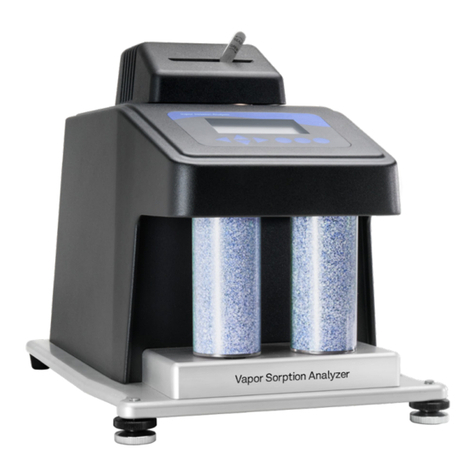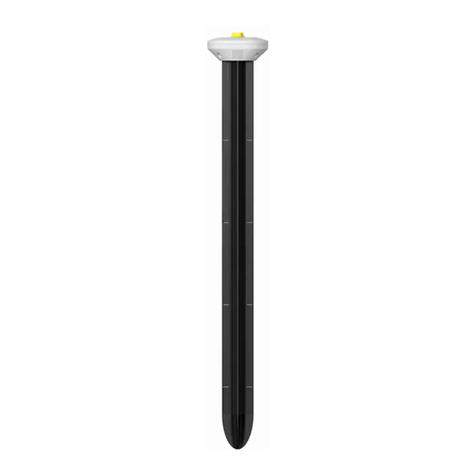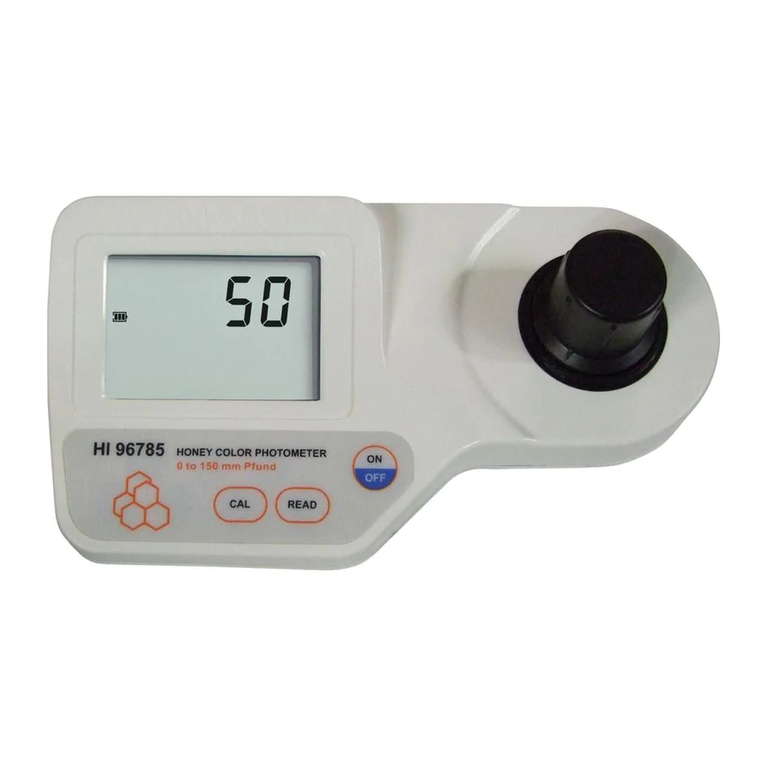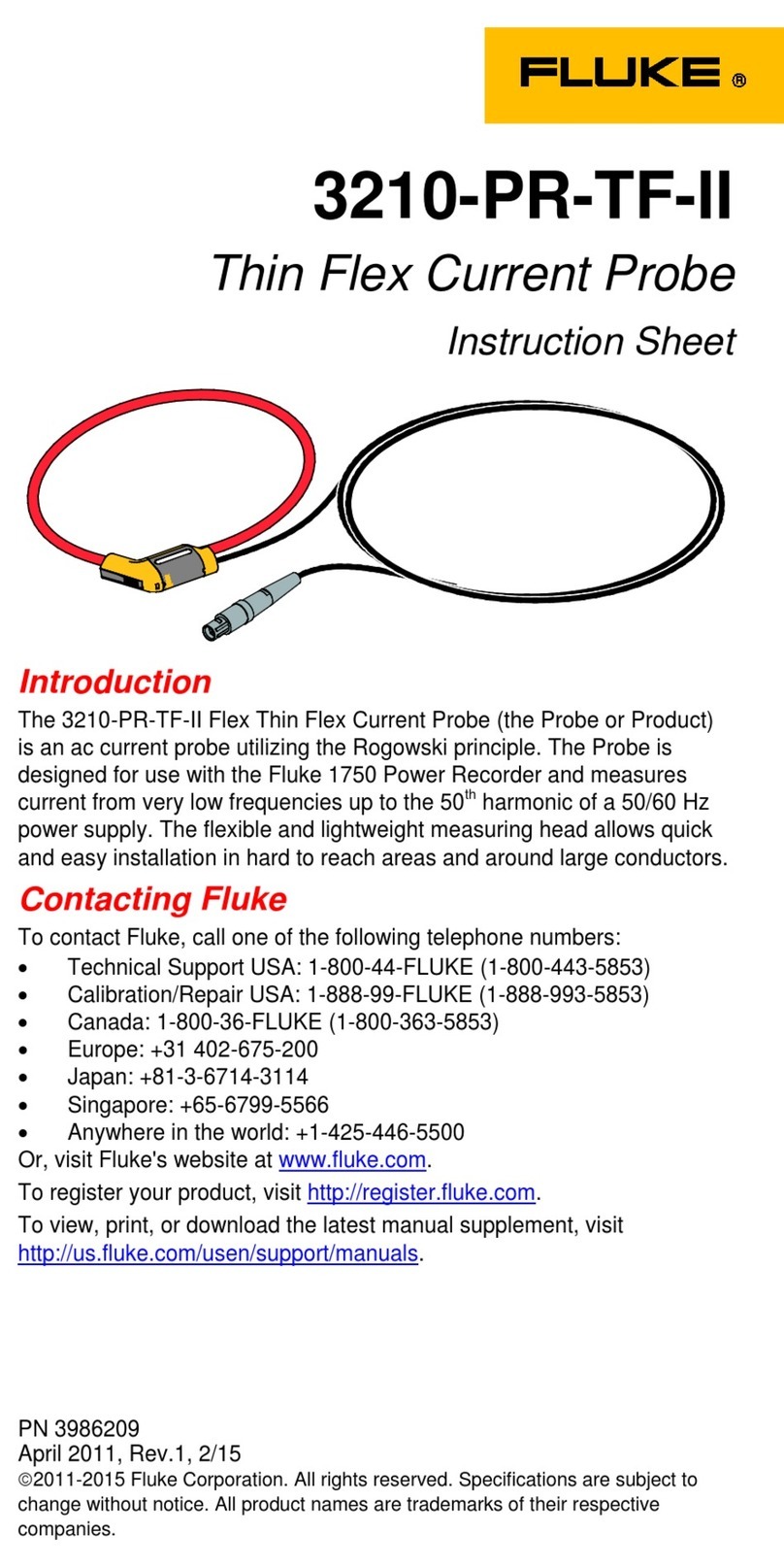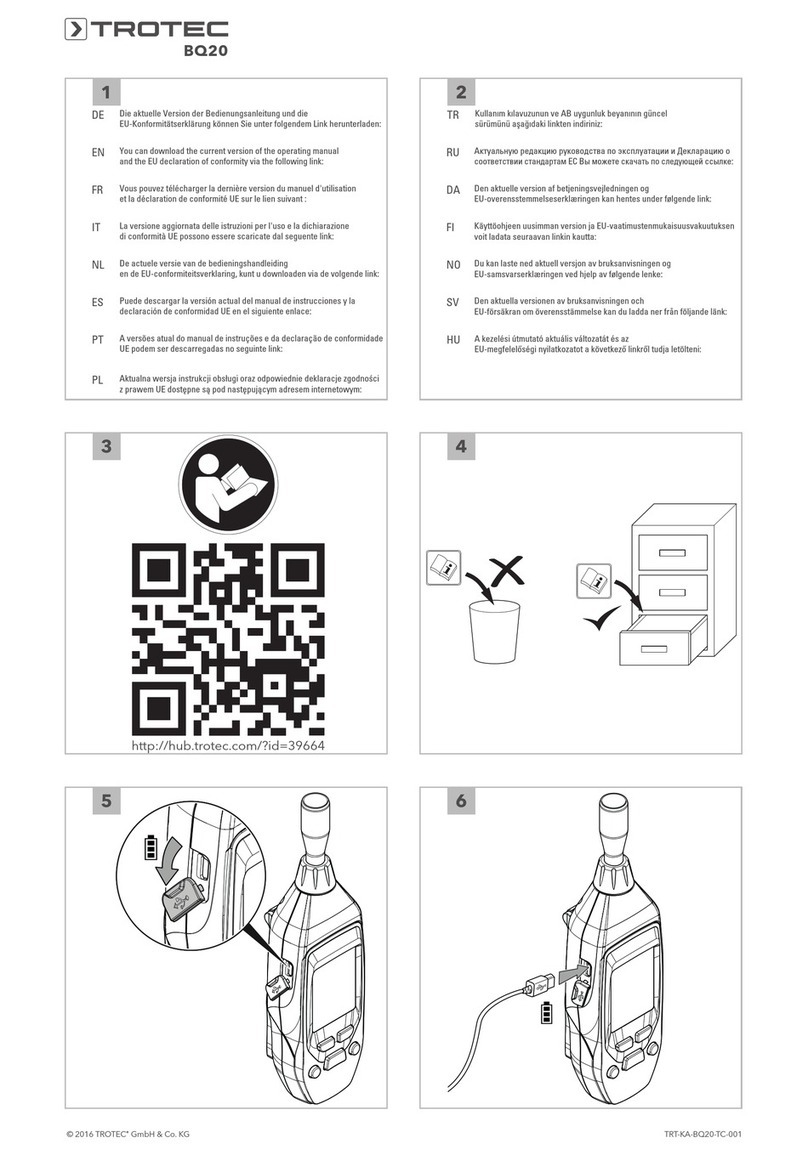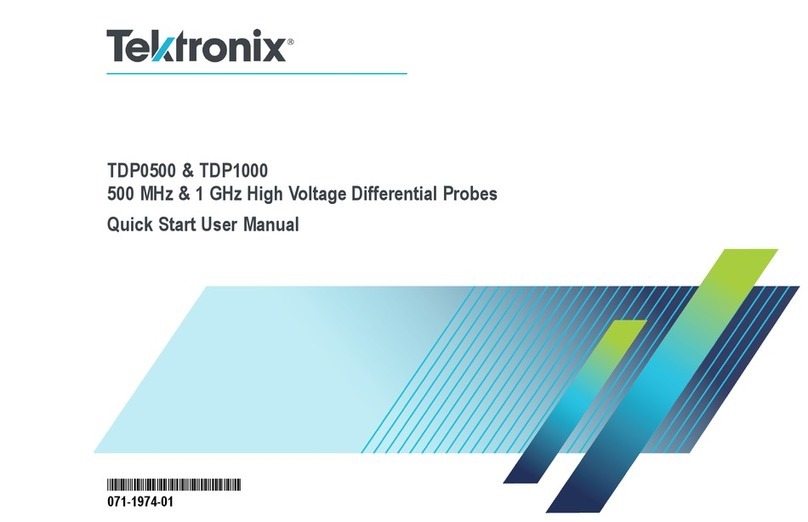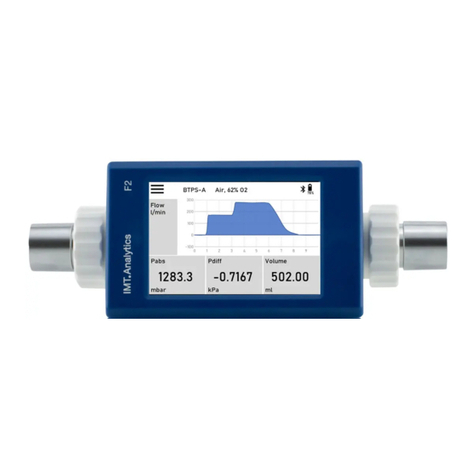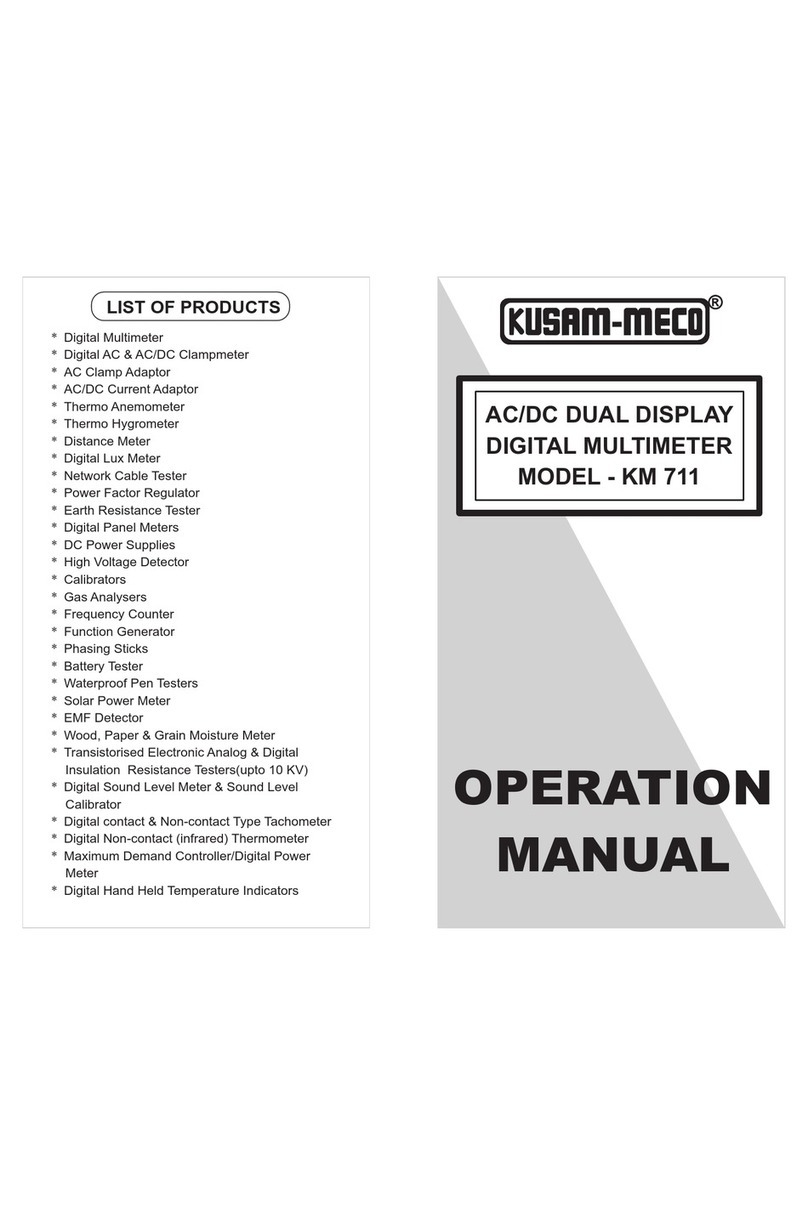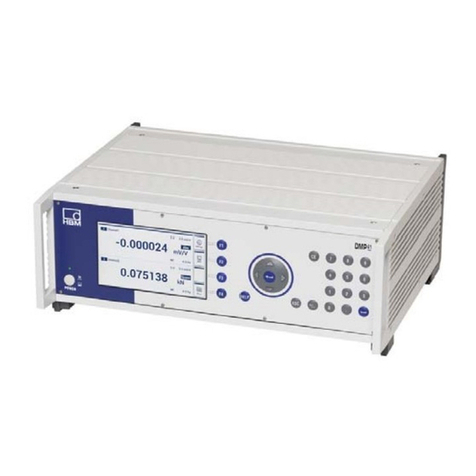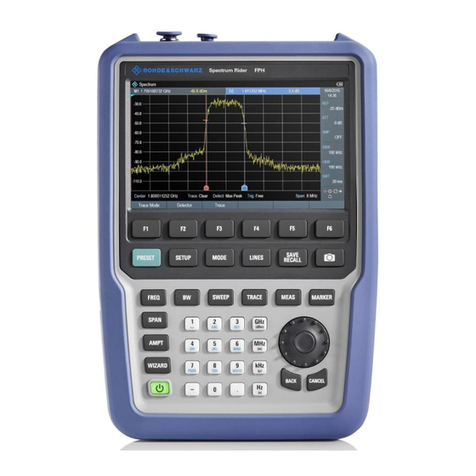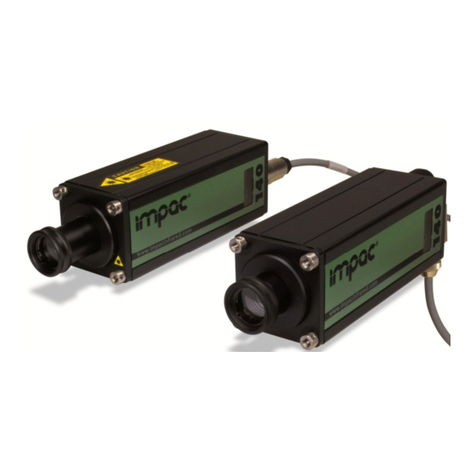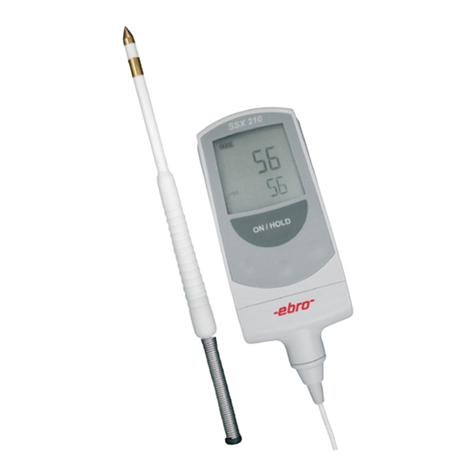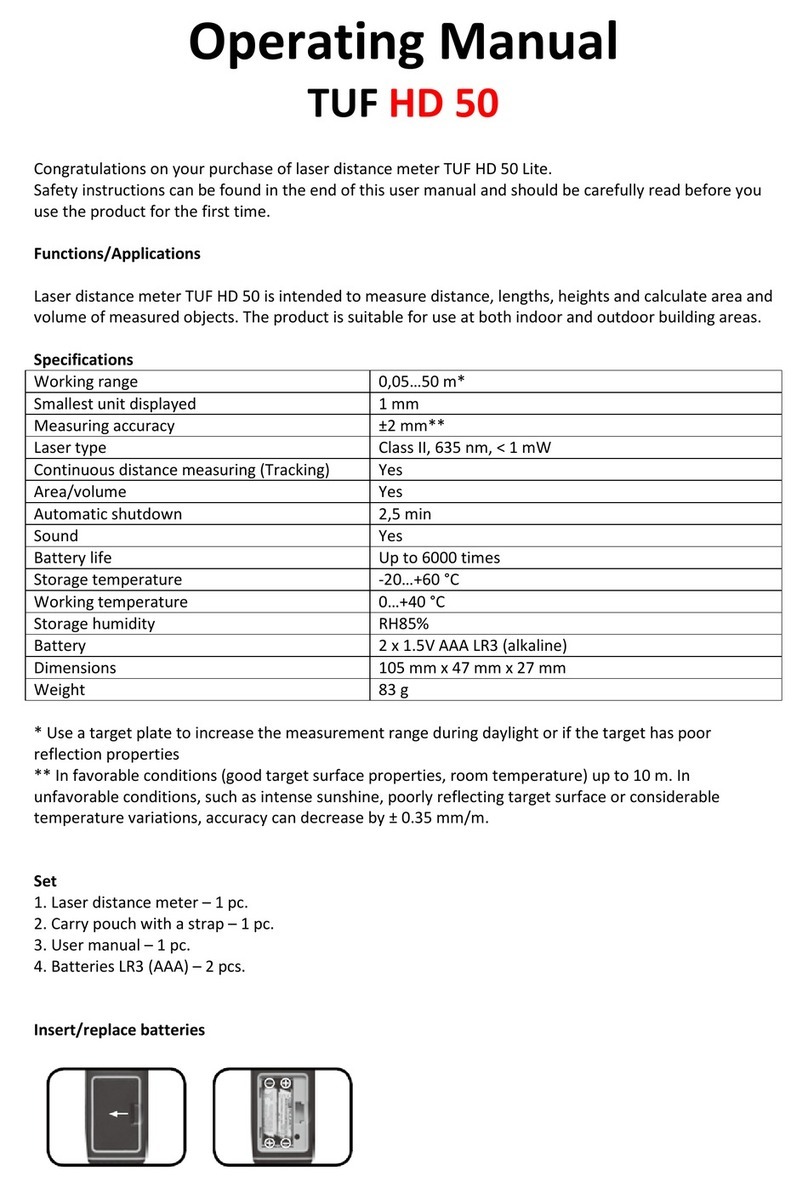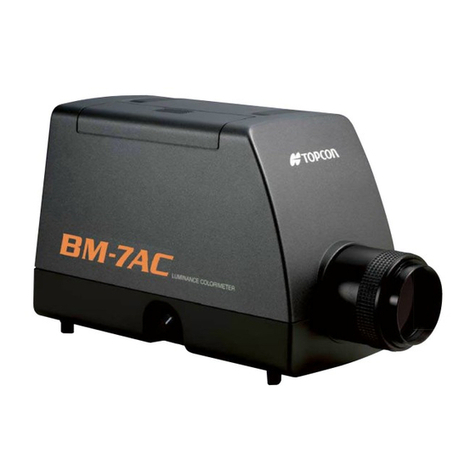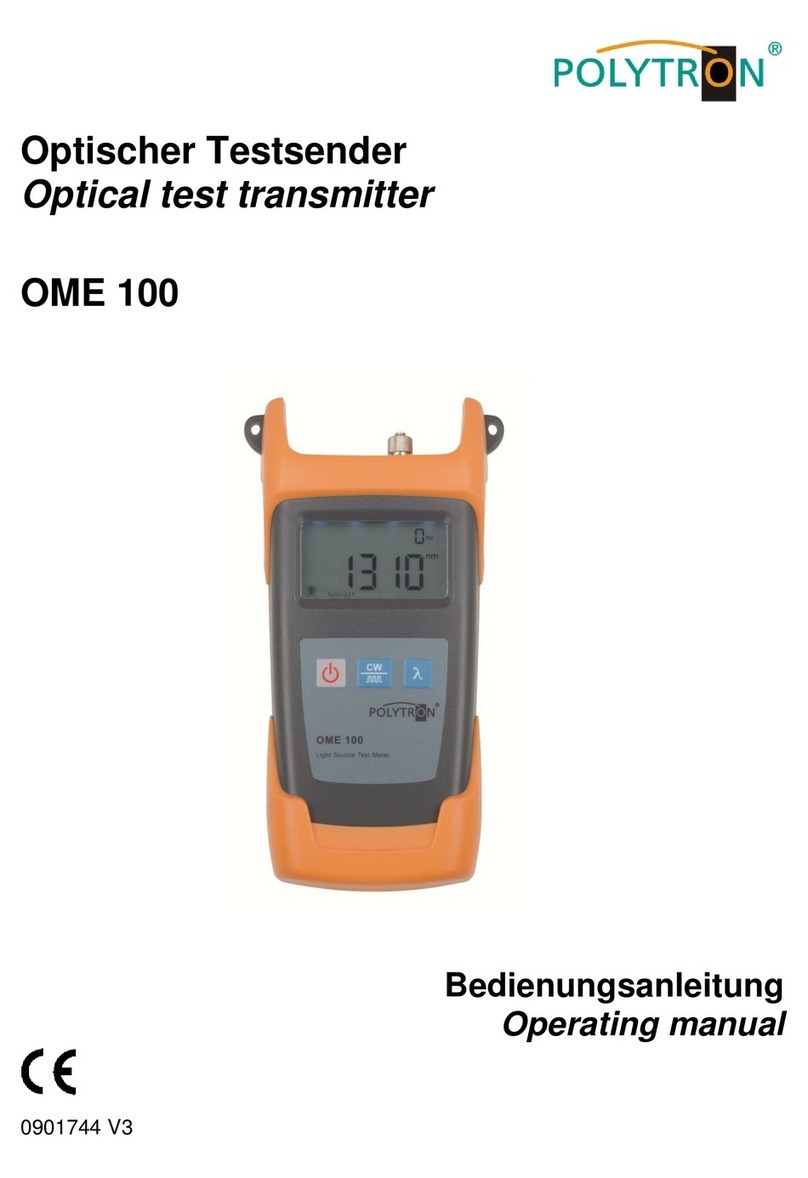METER APOGEE SQ-521 User manual

APOGEE
QUANTUM SENSOR

i
TABLE OF CONTENTS
1. Introduction.............................................................................................. 2
2. Installation................................................................................................2
2.1 Set Up Mounting Assembly........................................................................4
2.2 Connect to METER ZENTRA Series Logger .................................................5
3. Data Interpretation ..............................................................................6
4. Troubleshooting ..................................................................................... 6
5. Customer Support ................................................................................7
Index ...................................................................................................................8
18474-01
9.10.2021

p
a
g
e
e
I
N
S
T
R
U
M
E
N
T
S
M
a
d
e
i
n
U
S
A

2
USING APOGEE QUANTUM SENSORS WITH ZENTRA SYSTEM
1. INTRODUCTION
The SQ-521 Full-Spectrum Quantum sensor from Apogee Instruments, Inc. is a high-
accuracy, single-band radiometer designed for continuous measurement of photosynthetic
photon flux density (PPFD) or photosynthetically active radiation (PAR) measurement in
indoor or outdoor environments. The Apogee Full-Spectrum Quantum sensor has nearly
equal sensitivity across the spectral range from 389–692 nm (PAR band is 400–700 nm)
and is therefore a good choice for both above- and below-canopy measurement in outdoor
environments and also for indoor environments, where artificial light sources are used.
The information in this document explains how to install the required hardware to mount
Apogee SQ-521 sensors that have been preconfigured by METER Group to work seamlessly
with METER ZENTRA series data loggers. Details of how the ZENTRA system handles the
data are also included. Please read this document carefully in its entirety before going out to
the field.
For more information on the Apogee Full-Spectrum Quantum Sensor, please review the
SQ-521 User Manual on the Quantum Sensor product page (apogeeinstruments.com/
sq-521-ss-sdi-12-digital-output-full-spectrum-Quantum-sensor).
2. INSTALLATION
Follow the steps listed in Table 1 to install Apogee sensors in the field. A cable, mounting
bracket, leveling plate, and screws are included with the sensor. Other tools will need to be
provided.
Table 1 Installation
Tools Needed
Wrench 13 mm (0.5 in)
Flathead screwdriver
Mounting post 33.0 to 53.3 mm (1.3 to 2.1 in) diameter post, pole, tripod,
tower, or other similar infrastructure that extends above the canopy
Mounting bracket + leveling plate Model AL-120
Nylon screw #10-32 x 3/8 in (included)
METER ZENTRA series data logger ZL6 or EM60
METER ZSC Bluetooth®Sensor Interface (optional)
METER ZENTRA software ZENTRA Utility, ZENTRA Utility Mobile, or
ZENTRACloud

3
INSTALLATION
Table 1 Installation (continued)
Preparation
Conduct System Check
METER strongly recommends setting up and testing the system (sensors and
data loggers) in the lab or office.
Inspect and verify all components are intact.
Visit the data logger product page for the most up-to-date software and firmware.
Verify all sensors are functional and read within expected ranges.
Consider the Surroundings
For measurement of incoming PPFD in the outdoor environment, choose a
location that allows the sensor to be above the plant canopy or in a position
where the view of the sky is unobstructed (such as a large canopy gap or forest
clearing).
Ensure the sensor is not shaded from nearby objects (weather stations,
mounting posts, etc.).
Mounting
Install on Mounting Post
Use the U-bolt to mount the mounting bracket and sensor assembly
(Section2.1). The U-bolt is compatible with most meterological stands, poles,
tripods, and other mounts.
Ensure the sensor is oriented so the cable points toward true North (in the
Northern hemisphere) or true South (in the Southern hemisphere) to reduce
azimuth error.
Secure the System
Tighten the U-bolt nuts by hand until hand-tight, and then tighten with a wrench.
CAUTION: Do not overtighten U-bolt.
Adjust the three machine screws on the leveling plate until the integrated
bubble level indicates that the sensor is level
Secure and Protect Cables
NOTE: Improperly protected cables can lead to severed cables or disconnected sensors.
Cabling issues can be caused by many factors such as rodent damage, driving over sensor
cables, tripping over cables, not leaving enough cable slack during installation, or poor
sensor wiring connections.
Install cables in conduit or plastic cladding when near the ground to avoid
rodent damage.
Gather and secure cables between the sensors and the data logger to the
mounting post in one or more places to ensure cable weight does not pull the
plug free from its port.
Connect to Data Logger
Plug the sensor into a data logger.
Use the data logger to make sure the sensor is reading properly.
Verify these readings are within expected ranges.
For more instructions on connecting to data loggers, refer to Section2.2.

4
USING APOGEE QUANTUM SENSORS WITH ZENTRA SYSTEM
2.1 SET UP MOUNTING ASSEMBLY
The Apogee Quantum sensor must be level to accurately measure PPFD incident on a
horizontal surface. Each Apogee Quantum sensor purchased from METER comes with an
AL-120 Solar Mounting Bracket with Leveling Plate. The AL-120 can be mounted to either a
horizontal or vertical post, depending on which set of holes is used.
1. Align the cable M8 connector pins with the sensor M8 connector holes and seat
connectors fully.
2. Tighten the cable screw until hand-tight (Figure1).
M8 connectors are easy to overtighten. Do not use pliers or other tools to tighten
thisconnector.
Cable screw
Figure1 Attach M8 connector
3. Mount the sensor to the leveling plate (Figure2) with the included nylon screw.
Mounting bracket
(AL-120)
Sensor
(SQ-521)
Leveling plate
U-bolt
Figure2 Apogee Quantum sensor mounting assembly
4. Attach the leveling plate to the mounting bracket using the included three machine screws.
5. Attach the mounting bracket either to a horizontal arm (Figure2) or vertical post using
the included U-bolt.

5
INSTALLATION
2.2 CONNECT TO METER ZENTRA SERIES LOGGER
The Apogee Quantum sensor is preconfigured by METER and works seamlessly with METER
ZENTRA series data loggers. The sensor comes with a 3.5-mm stereo plug connector
(Figure3) to facilitate easy connection with the data loggers. Apogee sensors come standard
with a 5-m cable.
Ground
Digital
communication (orange)
Power (brown)
Figure3 3.5-mm stereo plug connector wiring
Check the METER download webpage for the most recent data logger firmware. Logger
configuration may be done using either ZENTRA Utility (desktop and mobile application) or
ZENTRA Cloud (web-based application for cell-enabled ZENTRA data loggers).
1. Plug the stereo plug connector into one of the sensor ports on the logger (Figure4).
Port 1Port 2Port3Port 4 Po rt5Port 6
TEST
OK
ERROR
(-)
(-)(-) (-)
(-)(+)(-)(+)(+)
(+)(+)(+)
Conduit
Figure4 Logger connection
2. Connect to the data logger via ZENTRA Utility with a laptop and USB cable or ZENTRA
Utility Mobile app with a mobile device supporting Bluetooth®communication.
3. Use ZENTRA Utility to scan the ports and make sure the sensors were properly identified
by the logger and are reading properly.
METER data loggers should automatically recognize the Apogee sensor.
4. Use ZENTRA Utility to set the measurement interval.
5. Use ZENTRA Utility to configure communication settings for data transfer to ZENTRA Cloud.
Sensor data can be downloaded from METER data loggers using either ZENTRA Utility or
ZENTRA Cloud. Refer to the logger user manual for more information.

6
USING APOGEE QUANTUM SENSORS WITH ZENTRA SYSTEM
3. DATA INTERPRETATION
The Apogee Quantum sensors used with the ZENTRA system report PPFD in units of
micromoles per square meter per second (μmol/m2/s). Additionally, the sensor orientation
information is provided in the metadata tab of ZENTRA Cloud and ZENTRA Utility Microsoft®
Excel®file downloads. Sensor orientation is reported as the zenith angle in units of degrees,
with a zenith angle of 0° indicating a sensor oriented straight up.
4. TROUBLESHOOTING
This troubleshooting section details possible major problems and their solutions. If the
problem is not listed or these solutions do not solve the issue, contact Customer Support.
Table 2 Troubleshooting
Problem Possible Solution
Sensor not responding Check power to the sensor and logger.
Check sensor cable and stereo plug connector integrity.
Check that the SDI-12 address of the sensor is 0(factory default).
Check this with ZENTRA Utility by going to Actions, select Digital
sensor terminal, choose the port the sensor is on, and send the
?I! command to the sensor from the dropdown menu.
Sensor values are not reasonable Verify the sensor is not shaded.
Verify the angle of sensors.
Cable or stereo plug
connectorfailure
If the stereo plug connector is damaged or needs to be replaced,
contact Customer Support for a replacement connector or
splice kit.
If a cable is damaged refer to the METER wire-splicing guide for
cable repair.
It is recommended that Apogee Quantum sensors are returned for factory recalibration every
2 years. Visit Apogee repairs (apogeeinstruments.com/recalibration-and-repairs) or contact
Apogee Technical Support (techsupport@apogeeinstruments.com) for details.

7
CUSTOMER SUPPORT
5. CUSTOMER SUPPORT
NORTH AMERICA
Customer support representatives are available for questions, problems, or feedback
Monday through Friday, 7:00 am to 5:00 pm Pacific time.
Email: support.environment@metergroup.com
sales.environment@metergroup.com
Phone: +1.509.332.5600
Fax: +1.509.332.5158
Website: metergroup.com
EUROPE
Customer support representatives are available for questions, problems, or feedback
Monday through Friday, 8:00 to 17:00 Central European time.
Email: support.europe@metergroup.com
sales.europe@metergroup.com
Phone: +49 89 12 66 52 0
Fax: +49 89 12 66 52 20
Website: metergroup.de
If contacting METER by email, please include the following information:
Name
Address
Phone
Email address
Instrument serial number
Description of the problem

INDEX
8
INDEX
C
cables 3, 5
components 2
connecting 5
customer support 7
D
data 6
data logger.
See
ZENTRA series data loggers
I
installation 2–3
mounting 3
preparation 3
tools needed 2
M
mounting 3
mounting bracket 2, 4
P
photosynthetic photon flux density 2, 3, 4, 6
Q
Quantum sensor 2, 4, 6
R
recalibration 6
S
stereo plug connector 5, 6
T
troubleshooting 6
U
U-bolt 3, 4
user manual 2
Z
ZENTRA series data loggers 2, 3, 5
ZENTRA software
Cloud 2, 6
Utility 2, 5, 6
ZSC 2

18475-01
9.10.2021
METER Group, Inc. USA
2365 NE Hopkins Court Pullman, WA 99163
T: +1.509.332.2756 F: +1.509.332.5158
E: info@metergroup.com W: metergroup.com
METER Group AG
Mettlacher Straße 8, 81379 München
T: +49 89 1266520 F: +49 89 12665220
E: info.europe@metergroup.com W: metergroup.de
© 2021 All Rights Reserved.

Table of contents
Other METER Measuring Instrument manuals
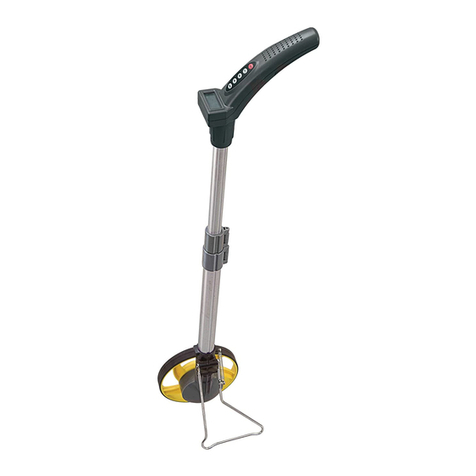
METER
METER MW04 User manual
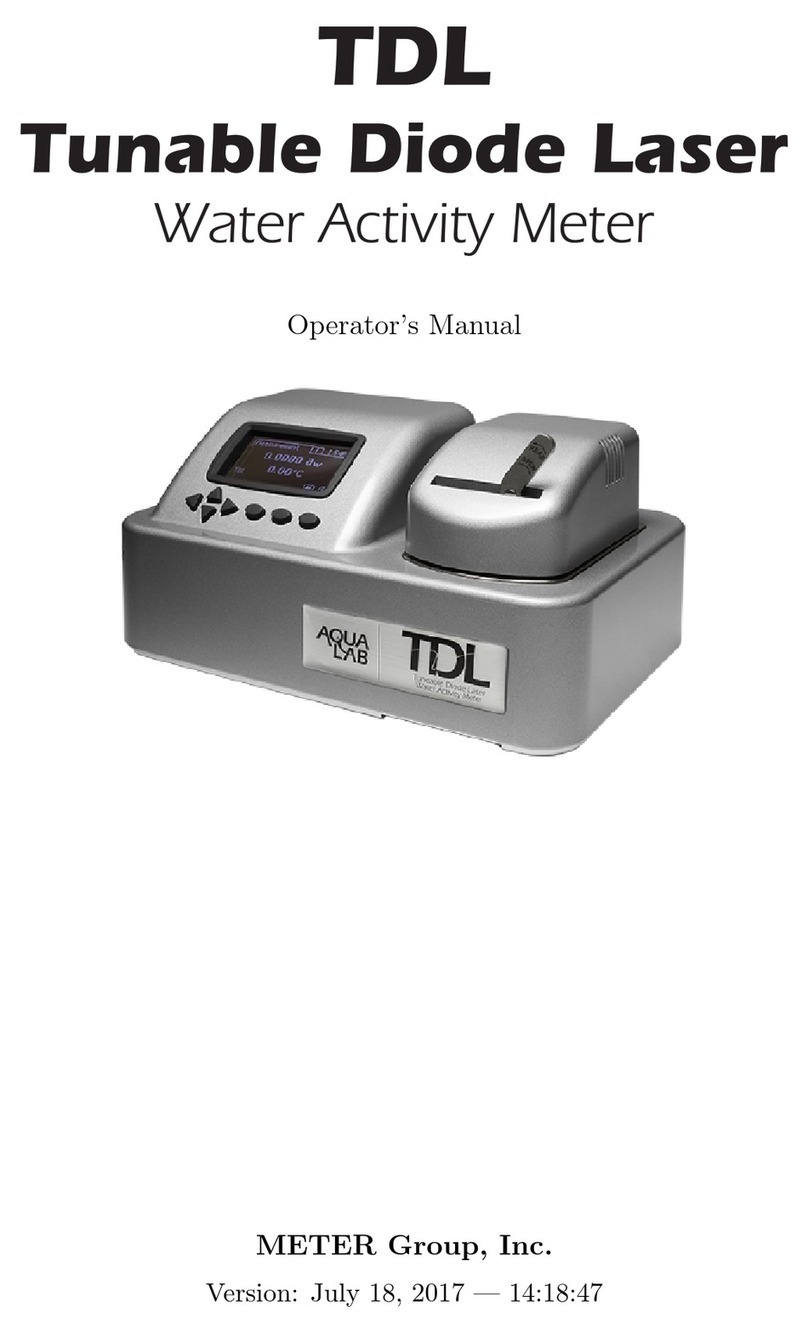
METER
METER AQUALAB TDL User manual
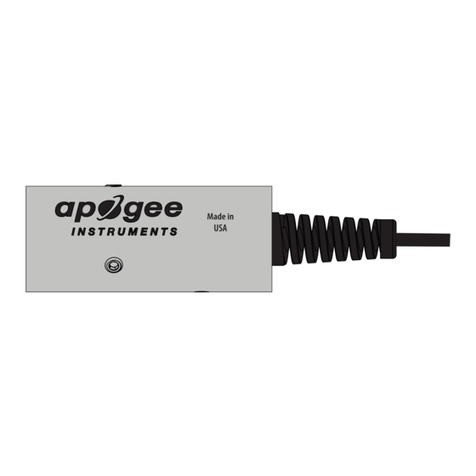
METER
METER SI-400 Series User manual
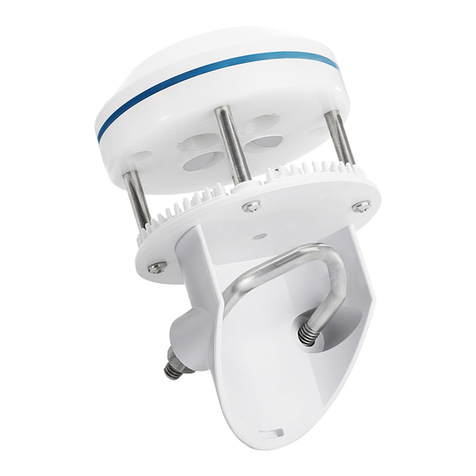
METER
METER ATMOS 22 User manual

METER
METER TEROS 32 User manual
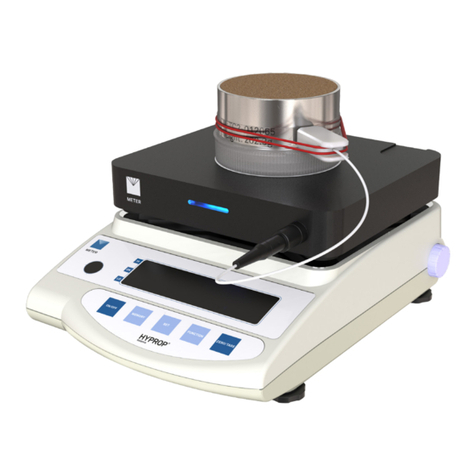
METER
METER VARIOS User manual

METER
METER AQUALAB TDL User manual
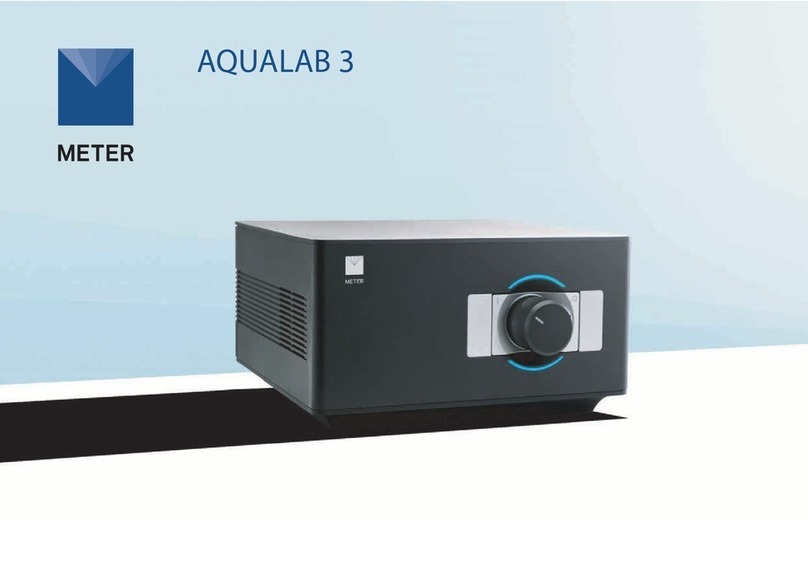
METER
METER AQUALAB 3 User manual
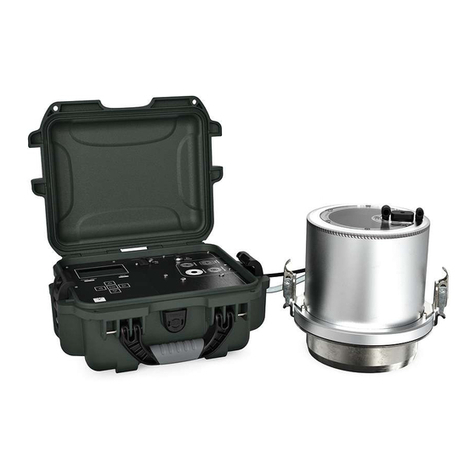
METER
METER SATURO User manual
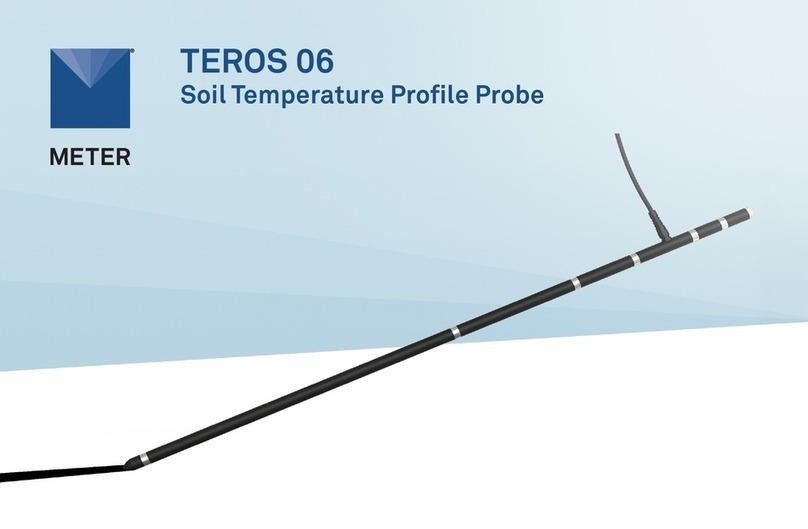
METER
METER TEROS 06 User manual

METER
METER AQUALAB 3 User manual
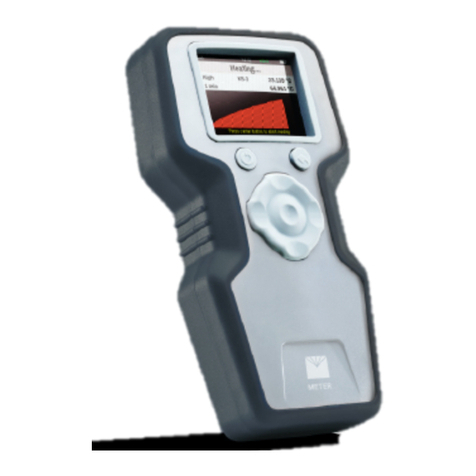
METER
METER TEMPOS User manual
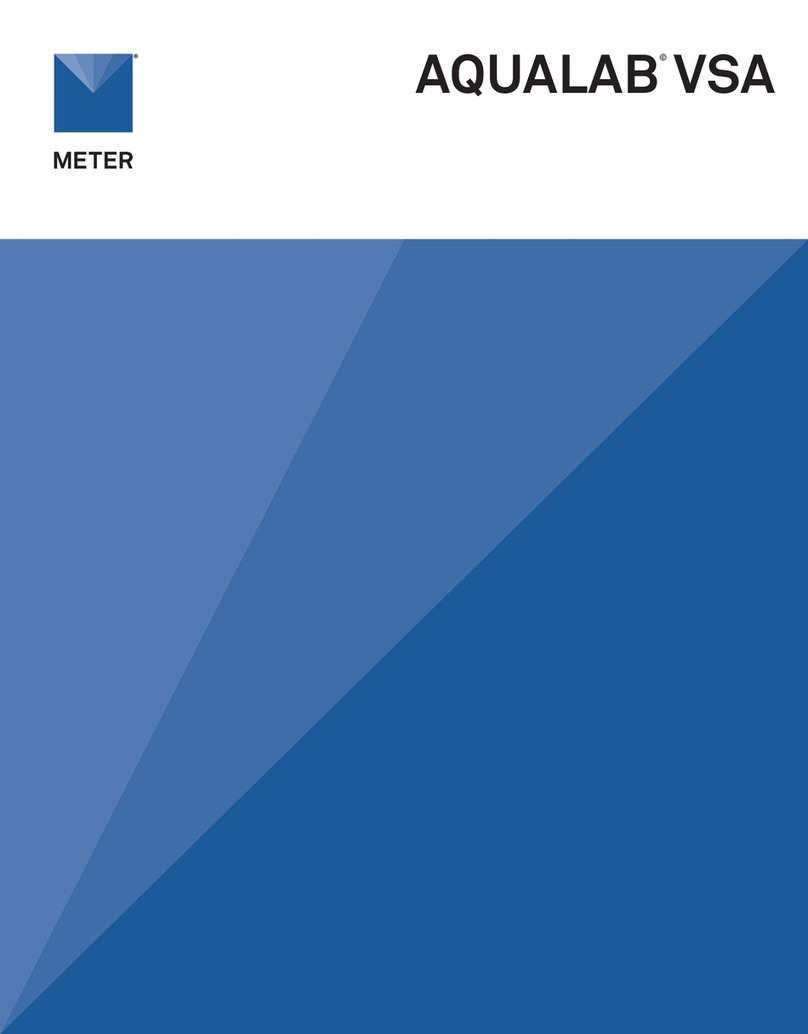
METER
METER AQUALAB User manual
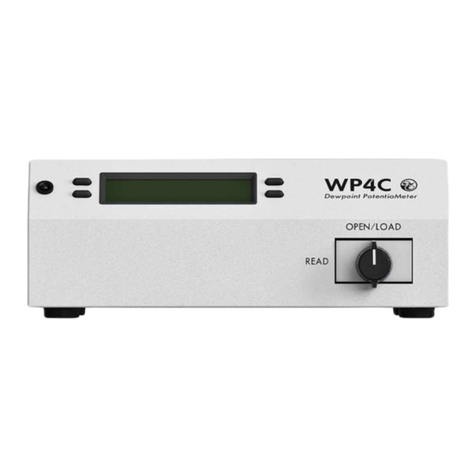
METER
METER WP4C User manual
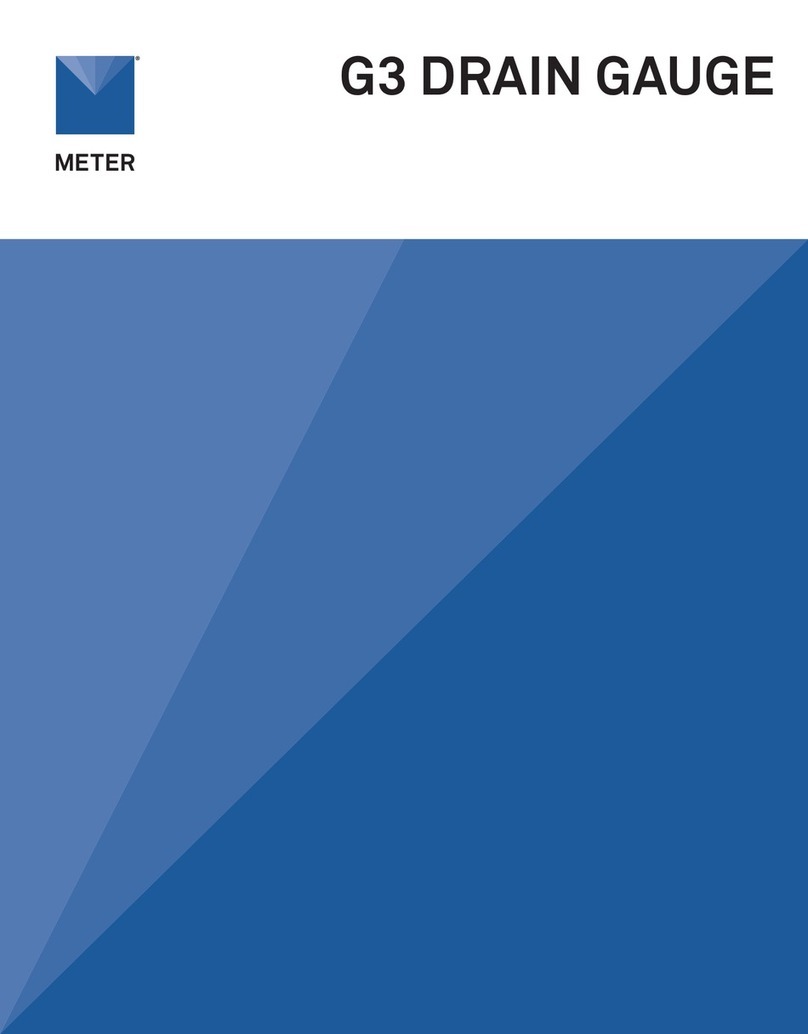
METER
METER G3 User manual
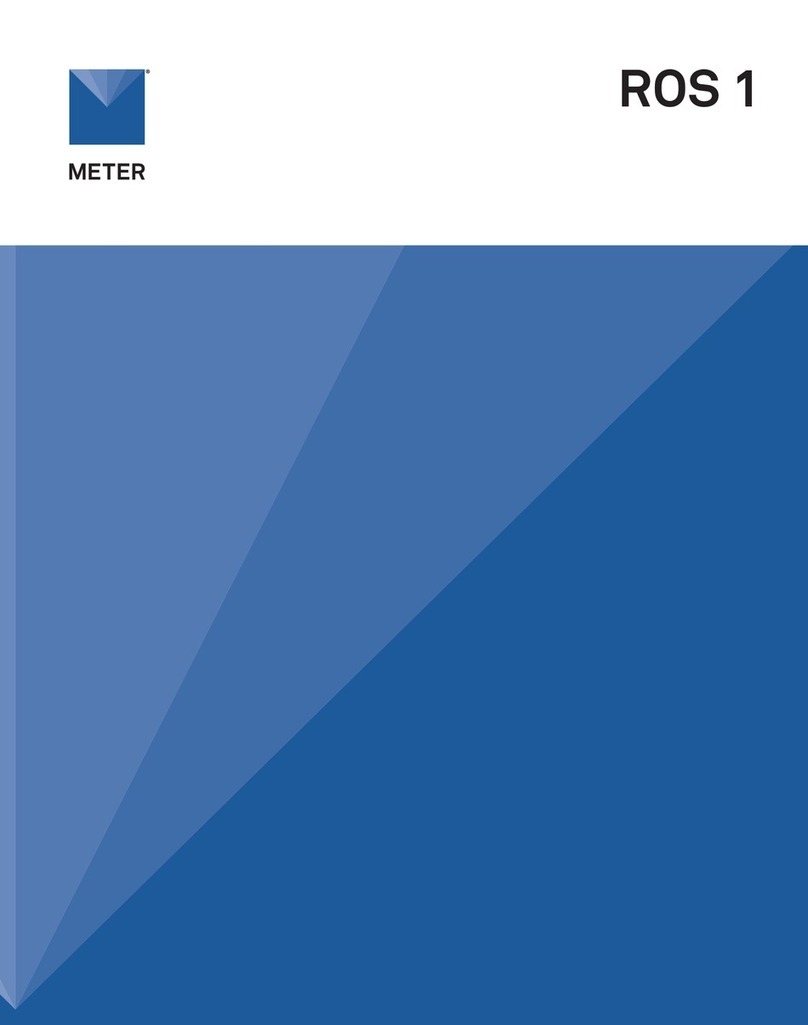
METER
METER ROS 1 User manual

METER
METER ATMOS 22 User manual
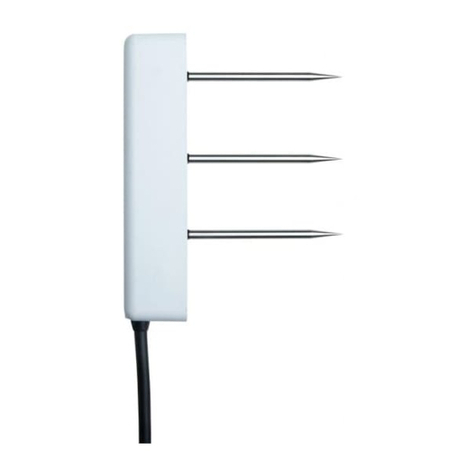
METER
METER TEROS 11 User manual
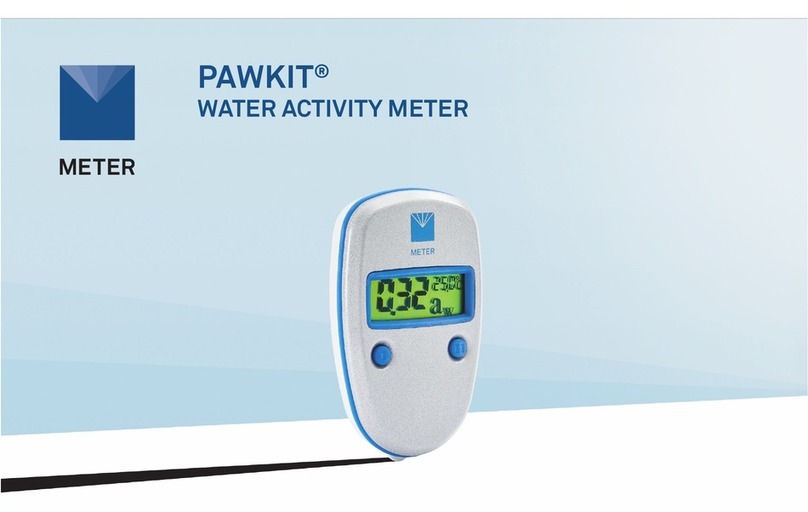
METER
METER AQUALAB PAWKIT User manual
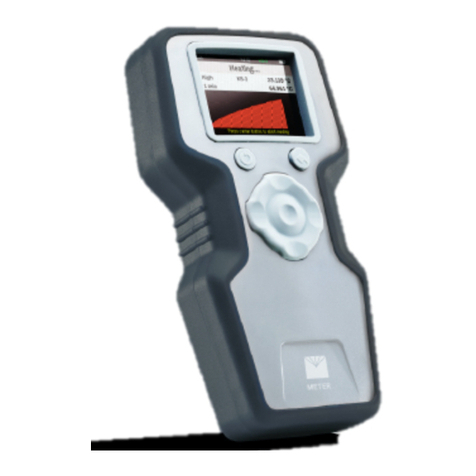
METER
METER THERMOLINK User manual


